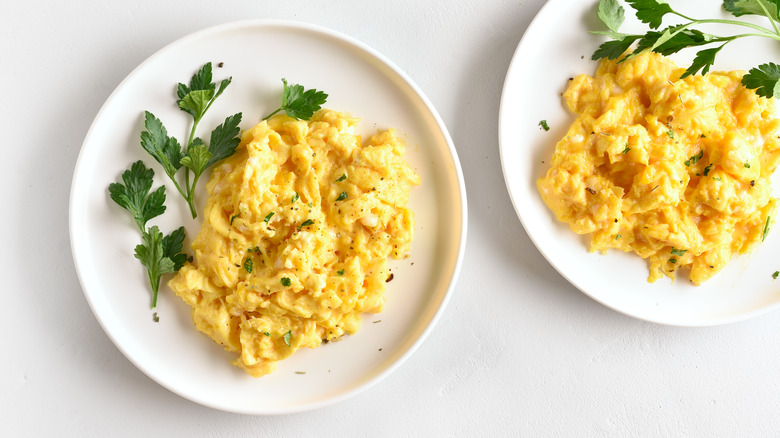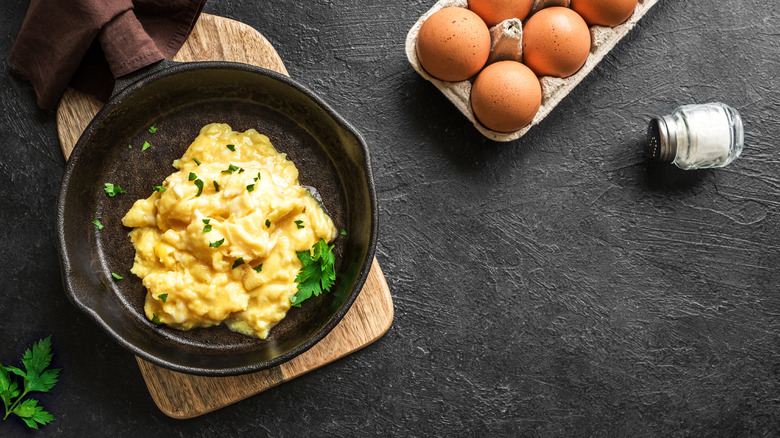Why You Should Think Twice About Putting Milk In Your Scrambled Eggs
Rubbery scrambled eggs are no less than an utter breakfast buzzkill. Whether it be at a school cafeteria or the breakfast buffet of a two-star hotel, rubbery scrambled eggs are the sad cornerstone of a sub-par meal. Even learning from a bad experience can be useful, though. By now, we all agree that texture is key when it comes to making delicious scrambled eggs. Surely, ones that are light, fluffy, and ever so creamy are arguably the best kind.
If, however, your scrambled eggs are more breakfast buffet than gourmet, it's likely because of the milk you're adding to the mix, says Southern Living. Adding milk to scrambled eggs might be a well-known cooking tip, but the truth is that it's more of an old wives' tale. In fact, milk actually does the exact opposite of what you're trying to achieve, serving only to dilute the flavor and ruin the integrity of the eggs. That signature rich, creamy texture of high-quality scrambled eggs comes fundamentally from the egg itself and the technique used to prepare it.
It's easy to overcook scrambled eggs with milk
Not only does milk effectively water down everything you want in a good plate of scrambled eggs, but it also makes them easier to burn. The reason, as explained by HuffPost, is that the thinner the scrambled egg mixture is, the faster it'll overcook. So, whatever liquid you add — water and cream included — can lead you to overcook the dish. This directly affects the consistency of the final product, ultimately making them that much more rubbery or dry.
According to Cook's Illustrated, the only kind of dairy you should be adding to your eggs is butter. But why does this addition help keep things creamy where others generate a sad, tough mess? The fat in butter helps to keep the proteins in the eggs from over-coagulating — that is, going rubbery. So, instead of making your scrambled eggs creamier with extra liquid, next time, lend the mixture some extra fat.

